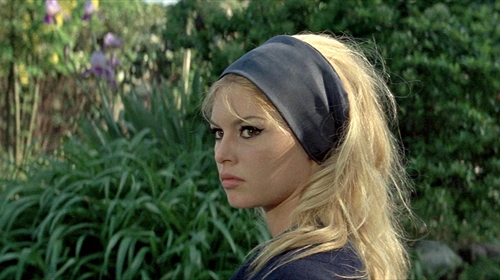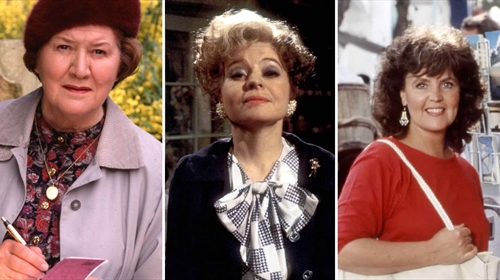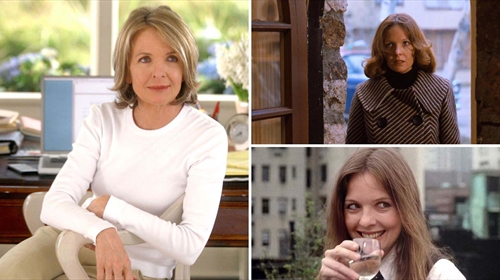Ryan O'Neal and Shirley Anne Field passed away within two days of each other. In linked articles, Cinema Paradiso remembers two performers whose stars burned brightly, if all too briefly.
Shirley Anne Field and Ryan O'Neal were born five years apart. Coming from markedly different backgrounds, they each rather drifted into acting and enjoyed a brief period - she at the start of the 1960s, he at the turn of the 1970s - when one success followed another. As Cinema Paradiso discovers, however, neither quite fulfilled their potential, as the media became more interested in their private lives than in their performances. Here's Ryan's story.
Showbiz Brat

The eldest son of screenwriter Charles O'Neal and actress Patricia O'Callaghan, Charles Patrick Ryan O'Neal was born in Los Angeles on 20 April 20 1941. Younger brother Kevin would also turn his hand to acting and writing, joining his mother in some of his sibling's biggest hits. Patricia mostly focussed on stage work, while Charles (who was nicknamed 'Blackie') enjoyed a decent run in Hollywood. Indeed, Cinema Paradiso users can check out his contributions to Mark Robson's The Seventh Victim (1943), Ray McCarey's The Falcon's Alibi (1946), Roy Del Ruth's The Alligator People (1959), and William Beaudine's Lassie's Great Adventure (1963). He was also responsible for Ray Enright's excellent Western, Return of the Badmen (1948), which teamed Randolph Scott and Robert Ryan.
Raised in Coldwater Canyon, the young Ryan was a bit of a rebel and Charles sought to channel his pugnacity by erecting a boxing ring in the back garden. 'I knew life was a kick, a fun time,' O'Neal later recalled, 'and part of the fun, I guess, was getting into a lot of fights.' In fact, O'Neal would go on to become a useful amateur boxer, competing in the prestigious Golden Gloves competition in 1956 and 1957 in tallying an 18-4 record, with 13 knockouts. In 1966, he even sparred with Joe Frazier in a two-round TV spot that boasted Muhammad Ali as the ringside summariser.
As the family moved around following Charles's writing assignments, O'Neal spent time in Britain, Mexico, the Caribbean, and West Germany. He studied at Los Angeles University High School, but transferred to Munich American High School in 1958, when his father landed a job on the runaway TV series, Tales of the Vikings, which was co-produced by Kirk Douglas's Bryna Productions. In order to knock off some of their son's rough edges, his parents considered enrolling him in the US Army High School. Appalled by the idea, he applied to become a stuntman and extra on the show.
When he was turned down, the teenager wrote to producer George Cahan: 'I am six feet tall, and with a false beard I will look as much like a Viking as any actor on the set.' Never one to undersell himself, O'Neal concluded, 'I may be the Gary Cooper of tomorrow.' He was hired and spent the next seven months working on the series. In 1960, however, he decided to return to Hollywood with the intention of becoming a star.
All Over the Place
While Shirley Anne Field was having a 1960 to remember, Ryan O'Neal was spending 51 days behind bars after assaulting a stranger at a party. On a more positive note, he managed to land a bit in the hit TV series, The Many Loves of Dobie Gilles, and a walk-on as a bellhop in the 'Jack "Legs" Diamond' episode of The Untouchables (1959-63), which had been written by his father. Further slots followed in shows like Leave It to Beaver and My Three Sons that are more fondly remembered Stateside than they are over here.
Progress was made when O'Neal was signed to the recurring role of Tal Garrett, opposite Richard Egan, in the latterday Western series, Empire (1961-62). But O'Neal opted against staying with the rebranded Redigo and found himself back on the jobbing circuit when Universal scrapped his contract. Cinema Paradiso users can catch his guest turns as Ben Anders in the 1963 'It Takes a Big Man' episode of The Virginian (1962-71) and John Carew in 'The Case of the Bountiful Beauty', a 1964 offering in the courtroom classic, Perry Mason (1957-66).
O'Neal was still doing the rounds of the networks when ABC identified him as the next Doug McClure (who had become a star in The Virginian) and cast him as Rodney Harrington in its new soap opera, Peyton Place. Grace Metalious's novel had been filmed by Mark Robson in 1957, with Barry Coe as Rodney. The picture had made Oscar history in matching the record for most nominations without a win (nine) that had been set by William Wyler's The Little Foxes (1941). Neither movie is available on disc in the UK, but each should be, if only for the respective lead performances of Bette Davis and Lana Turner.
ABC hoped Peyton Place would match the ratings success of Coronation Street (1960-) and it regularly commanded audiences of 60 million, as well as eight million on this side of the pond, when it became the first American soap to air on British television. During its five-year run, O'Neal would miss only 13 of 514 episodes, as his privileged mill owner's son became the talk of the small New England town because of his romantic entanglements with Allison MacKenzie (Mia Farrow) and Betty Anderson (Barbara Parkins).
The need to churn out storylines resulted in the showing acquiring a reputation for cutting corners that it would come to share with Crossroads (see Crossroads Archive: 45th Anniversary Set ). Indeed, O'Neal would later grumble, 'Some of the things the script forced us to say were so bad, we had to whisper them, hoping no one would hear us.'
When Farrow left to pursue a film career, she was replaced by Leigh Taylor-Young, who would become O'Neal's second wife in 1967, after he divorced the mother of Tatum and Griffin, Joanna Moore. She was also an actress and Cinema Paradiso members can click and order some of her 100+ television appearances, as well as features like Jesse Hibbs's Ride a Crooked Trail (1958), Gordon Douglas's Elvis Presley vehicle, Follow That Dream (1962), and Robert Stevenson's Disney sequel, Son of Flubber (1963).
Such were his TV commitments that O'Neal had yet to make a movie. When Peyton Place was cancelled, however, he played California cucumber picker Jack Ryan alongside Taylor-Young in Alex March's The Big Bounce (1969). In addition to being one of the first Hollywood films to include nudity after the curtailing of the Production Code in 1968, this was also the first screen adaptation of a novel by Elmore Leonard. The story would be recycled by George Armitage for The Big Bounce (2004). But Leonard was not impressed with either, considering them the worst movies ever made ever.
The New Cary Grant

With one film, Ryan O'Neal went from being that pretty boy off the telly to being an international superstar. He had been noticed by writer Erich Segal while playing marathon runner Scott Reynolds in Michael Winner's The Games, which Segal had scripted and which really should be released on disc in time for the Paris Olympics in 2024. Segal thought O'Neal would be perfect to play Oliver Barrett IV, whom he had modelled on Harvard roommates Al Gore and Tommy Lee Jones. When Arthur Hiller came to direct Love Story (both 1970), he took Segal's advice and cast O'Neal after Beau and Jeff Bridges, Michael York, Jon Voight, and Michael Douglas had turned the role down. Rejecting the chance to appear in a Jerry Lewis comedy, O'Neal readily agreed to co-star with Ali MacGraw, who was married to Paramount studio head Robert Evans, who saw Oliver as 'a Cary Grant role - a handsome leading man with lots of emotion'.
The romance between a rich Harvard undergraduate and down-to-earth music student Jennifer Cavilleri caught the popular imagination and made famous the phrase, 'Love is never having to say you're sorry.' Made for less than $2 million, it grossed $106.4 million at the box office and scooped seven Oscar nominations. Only Francis Lai's score won, however, with O'Neal losing out to George C. Scott in Franklin J. Schaffner's Patton (1970), who refused his award. But O'Neal did win the David Di Donatello Award for Best Foreign Actor, after landing a Golden Globe nod.
As he had not been expecting Love Story to be such a global phenomenon, O'Neal had signed up for George McCowan's Eric Ambler-scripted teleplay, Love Hate Love, and the much-truncated Blake Edwards Western, Wild Rovers (both 1971), in which O'Neal and William Holden essayed Montana cowboys, Frank Post and Ross Bodine. In order to further distance himself from all-American preppies, O'Neal expressed an interest in joining Julie Christie in Nicolas Roeg's adaptation of Isaac Dinesen's Out of Africa. This would never be made, although Meryl Streep would win an Oscar for her work as Karen Blixen in Sydney Pollack's Out of Africa (1985).
Fortunately, Peter Bogdanovich was waiting with an offer O'Neal couldn't refuse, to play musicologist Dr Howard Bannister opposite Barbra Streisand as the madcap Judy Maxwell, who disrupts his ordered existence at every turn. Owing much to Howard Hawks's Bringing Up Baby (1938), this screwball paean was more popular with audiences than critics, who inconveniently pointed out that Cary Grant and Katharine Hepburn had been funnier in the original. In fairness, O'Neal stooges graciously as Streisand steals the picture, which was the year's third highest earner after Francis Ford Coppola's The Godfather and Ronald Neame's pioneering disaster movie, The Poseidon Adventure.

Staying in Cary Grant mode, O'Neal took the role of computer programmer-turned-cracksman Webster McGee in Bud Yorkin's unfairly overlooked The Thief Who Came to Dinner (1972), which was scripted by Walter Hill and produced by sitcom king Norman Lear, who passed away in the same week as O'Neal, at the age of 101. He would later list this among the pictures he should never have done. But he had no such misgivings about a reunion with Bogdanovich on Paper Moon (1973), which was adapted from the Joe David Brown novel, Addie Pray.
Set in the Midwest during the Great Depression, the story centres around duplicitous Bible salesman, Moses Pray, and Addie Loggins, the nine year-old with whom he is saddled following the death of her mother. It's never stated that they are father and daughter, but the casting of Ryan and Tatum O'Neal put the notion in the viewer's mind and few could resist their screwball chemistry. While he was pleased to be nominated for a Golden Globe and end the year as the second most popular male star after Clint Eastwood, O'Neal was jealous of the fact that Tatum became the youngest Oscar winner in history.
He would later claim that Bogdanovich's advice that Moses should never think of Addie as his own addled his feelings towards his daughter and he would hit her after her Oscar triumph. 'My father terrorised me,' she revealed in her autobiography, 'but Griffin was his real whipping boy. Most of the time I couldn't protect Griffin from my father. He was always covered with bruises, which he'd account for with crazy stories about falling downstairs with his hands in his pockets.'

Stanley Kubrick had been impressed by O'Neal's passivity in the midst of the chaos going on around him in What's Up, Doc? and felt this quality would make him the ideal choice for Redmond Barry, the roguish 18th-century Irish anti-hero of William Makepeace Thackeray's Barry Lyndon (1975). As Kubrick had left the United States and refused to fly, O'Neal spent much of the next year filming in Ireland and Britain. 'He shoots a lot of takes,' he later complained, 'and you don't get a stand-in. We shot for something like 350 days, and afterward they had to carry me away.'
Having waited four years after Kubrick's contentious adaptation of Anthony Burgess's A Clockwork Orange (1971), critics were confused by a pacifist tract that also satirised the upper echelons of society. Consequently, the box-office takings underwhelmed and O'Neal was singled out for blame with the Harvard Lampoon Award for the Worst Actor of 1975. He would later claim that his career never recovered from this negative reception. But he dodged a bullet by being unavailable for Bogdanovich's mauled wife-swapping musical, At Long Last Love (1975), which saw Burt Reynolds line up instead alongside O'Neal's mother and brother in bit parts.
The director did convince Ryan and Tatum to reunite for Nickelodeon (1976), a homage to the early days of movies that was inspired by the recollections of pioneering directors Allan Dwan and Raoul Walsh. Although a bit corny in place and crass in others, the story of Leo Harrigan's passage from lawyer to film-maker has its insights and highlights. Burt Reynolds was also game as Leo's long-suffering star, Buck Greenway. But the critics were unkind and O'Neal was given an even more raucous ride after he played General James Gavin in Richard Attenborough's Arnhem account, A Bridge Too Far (1977). In fact, O'Neal and Gavin were much the same age, but the actor's youthful looks felt out of place in such a relentless reconstruction of Operation Market Garden and few were impressed by the fact that O'Neal had done his own parachute jump.
Eager to reinvent himself as an action man, O'Neal reunited with Walter Hill for The Driver (1978), a high-octane urban Western in which O'Neal's ace getaway driver seeks help from Isabelle Adjani's cool player when Bruce Dern's detective sets up a sting operation to snare him. Having taken a similar role in Hill's The Getaway (1972), Steve McQueen turned the picture down, while Charles Bronson had not forgiven Hill for showing him to disadvantage in Hard Times (1975). Yet this pacy noir did little to reverse O'Neal's decline, although its cult status has led to Quentin Tarantino quoting from it in both Pulp Fiction (1994) and Kill Bill: Volume 2 (2004), while its influence is readily evident on Nicolas Winding Refn's Drive (2011) and Edgar Wright's Baby Driver (2017).

As Wallace Beery had won the Academy Award for Best Actor in King Vidor's The Champ (1931), O'Neal was keen to show-off his boxing skills in Franco Zeffirelli's The Champ (1979). He also felt that son Griffin would be right for the Jackie Cooper role, but the Italian thought otherwise and Jon Voight wound up being cast alongside Ricky Schroeder. Feeling spurned, O'Neal changed his mind about taking a bumper payday to reprise the role of Oliver Barrett IV opposite Candice Bergen in John Korty's Oliver's Story (1978). He then agreed to re-team with Barbra Streisand in Howard Zieff's The Main Event (1979), which gave him the chance to go through his paces in the ring as Eddie 'Kid Natural' Scanlon, the prizefighter whose contract is inherited by busted heiress, Hillary Kramer.
Upbeat after the box-office bounce, O'Neal was lined up to co-star with Diana Ross in John Boorman's The Bodyguard. However, the project collapsed following Ross's defection and Kevin Costner and Whitney Houston ended up taking the roles in Mick Jackson's The Bodyguard (1992). More frustration followed when Michelangelo Antonioni's Suffer or Die did not materialise. But O'Neal remained philosophical. 'What I have to do now, seriously, is win a few hearts as an actor,' he told the press. 'The way Cary Grant did. I know I've got a lot of winning to do. But I'm young enough. I'll get there.' Fighting talk, indeed.
Long Way Down
In 1979, Lee Majors, the star of The Six Million Dollar Man (1974-78), asked pal Ryan O'Neal to take his wife out for dinner while he was filming in Canada. Unsurprisingly, the media seized on the resulting romance, as Farrah Fawcett-Majors had found fame in Charlie's Angels (1976-81) alongside Kate Jackson and Jaclyn Smith. The couple's feuds made headlines for the next few years, with O'Neal's reputation for violence being reinforced when it emerged in 1984 that he had knocked out two of Griffin's teeth during a brawl. He would later confess, 'I beat up my own kids. I am deeply ashamed.' But things got worse for Griffin, as, two years later, he was behind the wheel when Francis Ford Coppola's 23 year-old son, Gian-Carlo, was killed in a motorboat accident.
This domestic turbulence coincided with a decline in O'Neal's professional fortunes. He had hoped to reunite with Arthur Hiller on a big-screen adaptation of The Thorn Birds. But the project fell through and Colleen McCullough's bestselling novel was reworked as a 1983 mini-series for Richard Chamberlain. Instead, O'Neal supported Tatum with an uncredited cameo as a theatregoer in Jules Dassin's comedy, Circle of Two. He also played an academic whose father gets into trouble with gangsters in Andrew Bergman's directorial debut, 'So Fine' (both 1981).

More significantly, he accepted a sizeable fee to play Joseph Wiley, the American engineer who becomes enmeshed in emerald smuggling and kidnapping in Ernest Day's Green Ice (1981). But for the quick thinking of stuntman Vic Armstrong, O'Neal might have drowned while filming off Las Hadas. But his antipathy towards co-star Anne Archer made life so difficult that Anthony Simmons quit midway through the shoot and was replaced by his second unit director. The picture flopped, as did James Burrows's odd couple comedy, Partners (1982), in which O'Neal and John Hurt starred as LAPD officers who pretend to be a couple in order to investigate the murder of some gay men. Astonishingly, Woody Allen and Clint Eastwood were initially offered the roles!
Co-stars Shelley Long and Drew Barrymore were nominated for Golden Globes, but O'Neal missed out as one half of a couple whose daughter seeks to divorce them in Charles Shyer's Irreconcilable Differences (1984). Despite O'Neal playing a parodic version of Peter Bogdanovich, this isn't currently available to rent. Neither are Richard Brooks's Fever Pitch (1985) nor Norman Mailer's Tough Guys Don't Dance (1988), although O'Neal's performances as a gambling sportswriter and a pot-smoking novelist contributed to his Golden Raspberry nomination for Worst Actor of the Decade.

Cinema Paradiso users can see O'Neal accepting the second banana role of Philip Train, the best friend of lawyer Louie Jeffries (Robert Downey, Jr.) who is reborn as Alex Finch in Emile Ardolino's reincarnation comedy, Chances Are (1989). But that's it for the century, as far as O'Neal is concerned, although he did make two guest appearances in 1995 on The Larry Sanders Show (1992-98). During the 90s, he made seven features, including Arthur Hiller's Razzie-winning An Alan Smithee Film: Burn Hollywood Burn (1998), which was so bad that Hiller disowned it. We think that should qualify it for a disc release, but no one else seems to agree.
By now the parents of a son named Redmond, O'Neal and Fawcett joined forces on the teleplay, Small Sacrifices (1989), and the short-lived sitcom, Good Sports (1991). But their relationship remained stormy and they broke up in 1997 after she caught him in bed with actress Leslie Stefanson. The previous year, O'Neal had shown to advantage as the husband who hires hitman Chazz Pamlinteri to kill wife Cher in Faithful (1996). Director Paul Mazursky told of temper tantrums on set, but insisted, 'He's sweet as sugar, and he's volatile. He's got some of that Irish stuff in him, and he can blow up a bit...He's sort of a big baby at times, but he's a good guy, and he's very talented. He's had a strange career, but he was a monster star.'

The word 'was' must have cut deep, as O'Neal was now better known for his private life than his performances. He felt he deserved more respect, especially after holding his own against Al Pacino as actor-turned-political candidate Cary Launer in Daniel Algrant's People I Know (2002). But his turn as a judge in a high-profile blackmail case in The List (2000) went under the radar and nothing else registered until he played a voyeur in the slasher, Slumber Party Slaughter (2012), which summed up O'Neal's cinematic decline. On television, he had a regular slot opposite Alicia Silverstone in Miss Match (2003), while he guested on Desperate Housewives (2004-12), 90210 (2008-13), and Bones (2005-17), in which he played Max Brennan, the father of Temperance 'Bones' Brennan (Emily Deschanel), in 24 episodes over 12 years.
He reflected upon his contributions to Love Story and Barry Lyndon in Nanette Burstein and Brett Morgen's The Kid Stays in the Picture (2002) and Tony Zierra's Film Worker (2017). O'Neal also narrated Shaun Monson's Unity. But he didn't make another feature after cameoing in the Hollywood party sequence in Terrence Malick's 'King of Cups' (both 2015). Not that he was out of the public eye, however. In 2001, he patched things up with Farrah Fawcett and nursed her through her final illness. However, in 2007, he was arrested for shooting at Griffin and again in 2008 (this time with Redmond) for possession of narcotics.
Keen to make amends to his daughter, O'Neal joined her in the 2011 reality show, Ryan and Tatum: The O'Neals, which was made for the Oprah Winfrey Network. However, it only ran for nine episodes and did little to bridge the gap. A reunion with Ali MacGraw in A.R. Gurney's stage play, Love Letters, went better in 2016. But there was to be no happy ending and Ryan O'Neal died at a Santa Monica hospital on 8 December 8 2023. He was 82.
-
Love Story (1970)
 Play trailer1h 36minPlay trailer1h 36min
Play trailer1h 36minPlay trailer1h 36minDespite the objections of their fathers (Ray Milland and John Marley), Harvard student Oliver Barrett IV (Ryan O'Neal) and Radcliffe College musician Jennifer Cavilleri (Ali MacGraw) marry and stick together through thick and thin.
- Director:
- Arthur Hiller
- Cast:
- Ali MacGraw, Ryan O'Neal, John Marley
- Genre:
- Drama, Classics, Romance
- Formats:
-
-
What's Up, Doc? (1972)
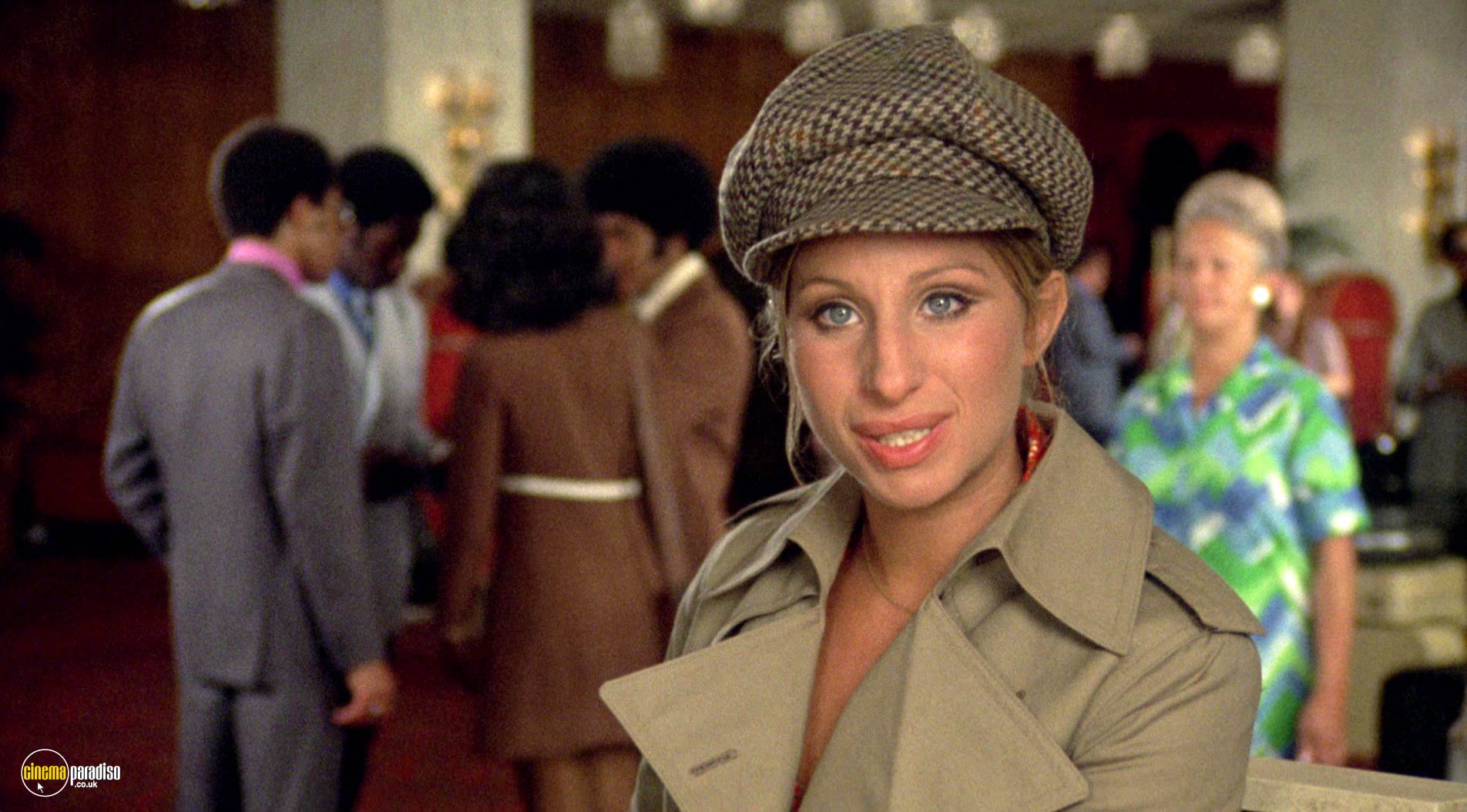 Play trailer1h 29minPlay trailer1h 29min
Play trailer1h 29minPlay trailer1h 29minMusicologist Howard Bannister (O'Neal) is engaged to Eunice Burns (Madeline Kahn). From the moment he runs into Judy Maxwell (Barbra Streisand) in a hotel pharmacy, however, his ordered existence becomes as uncertain as the fate of his plaid overnight bag.
- Director:
- Peter Bogdanovich
- Cast:
- Barbra Streisand, Ryan O'Neal, Madeline Kahn
- Genre:
- Comedy, Classics, Romance
- Formats:
-
-
Paper Moon (1973) aka: Luna de papel
 1h 42min1h 42min
1h 42min1h 42minWhen her mother dies, nine year-old Addie Loggins (Tatum O'Neal) is placed in the care of Moses Pray (Ryan O'Neal), a chancer trying to survive the Depression in the American Midwest by posing as a Bible salesman.
- Director:
- Peter Bogdanovich
- Cast:
- Ryan O'Neal, Tatum O'Neal, Madeline Kahn
- Genre:
- Children & Family, Drama, Comedy, Classics
- Formats:
-
-
Barry Lyndon (1975)
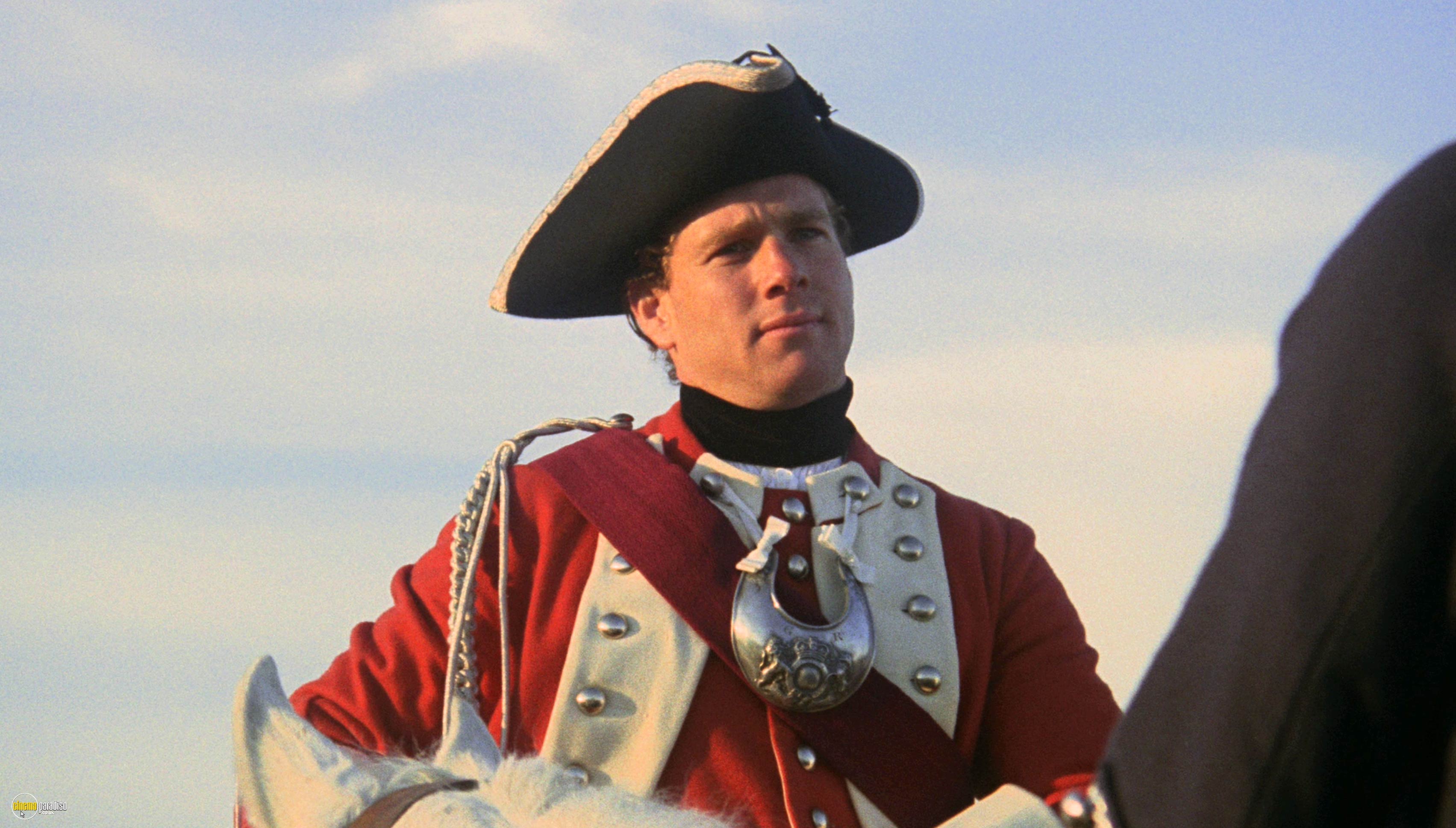 Play trailer2h 58minPlay trailer2h 58min
Play trailer2h 58minPlay trailer2h 58minIn the 1750s, Irish rogue Redmond Barry (O'Neal) has spells in the British and Prussian armies before an encounter with a slippery compatriot leads to his introduction to the recently widowed and extremely wealthy Lady Lyndon (Marisa Berenson).
- Director:
- Stanley Kubrick
- Cast:
- Michael Hordern, Ryan O'Neal, Marisa Berenson
- Genre:
- Drama, Classics, Action & Adventure
- Formats:
-
-
Nickelodeon (1976) aka: Footlight Parade
 Play trailer1h 58minPlay trailer1h 58min
Play trailer1h 58minPlay trailer1h 58minNew York lawyer Leo Harrigan (O'Neal) becomes a film-maker in the 1910s and is offered a chance to move to Hollywoodland after the success of his short peril pictures starring Buck Greenway (Burt Reynolds) and Kathleen Cooke (Jane Hitchcock).
- Director:
- Peter Bogdanovich
- Cast:
- Ryan O'Neal, Burt Reynolds, Tatum O'Neal
- Genre:
- Comedy
- Formats:
-
-
The Driver (1978)
 Play trailer1h 28minPlay trailer1h 28min
Play trailer1h 28minPlay trailer1h 28minThe Detective (Bruce Dern) is determined to catch the getaway driver he calls 'The Cowboy' (O'Neal). He plans a sting heist, but his nemesis is able to draw on the expertise of a sharp operator known as The Player (Isabelle Adjani).
- Director:
- Walter Hill
- Cast:
- Ryan O'Neal, Bruce Dern, Isabelle Adjani
- Genre:
- Thrillers, Action & Adventure
- Formats:
-
-
The Main Event (1979) aka: Combate de fondo
 Play trailer1h 44minPlay trailer1h 44min
Play trailer1h 44minPlay trailer1h 44minWhen perfume heiress Hillary Kramer (Barbra Streisand) discovers that she has been swindled out of her inheritance, she vows to make good through her one remaining asset, a boxer named Eddie Scanlon (O'Neal), who has quit the ring to become a driving instructor.
- Director:
- Howard Zieff
- Cast:
- Barbra Streisand, Ryan O'Neal, Paul Sand
- Genre:
- Comedy, Sports & Sport Films, Romance
- Formats:
-
-
Green Ice (1981) aka: GreenIce
 1h 45min1h 45min
1h 45min1h 45minEngineer Joseph Wiley (O'Neal) finds a cache of emeralds in his hotel room and becomes involved with Lillian Holbrook (Anne Archer), who hopes that he and gem dealer Meno Argenti (Omar Sharif) can help her find the sister who has gone missing in Colombia.
- Director:
- Ernest Day
- Cast:
- Ryan O'Neal, Anne Archer, Omar Sharif
- Genre:
- Action & Adventure, Romance
- Formats:
-
-
Chances Are (1989) aka: Después de todo
 Play trailer1h 44minPlay trailer1h 44min
Play trailer1h 44minPlay trailer1h 44minHaving been reborn after his early death, Alex Finch (Robert Downey, Jr.) begins recalling his past life as Louie Jeffries, whose wife (Cybill Shepherd) and daughter (Mary Stuart Masterson) have come to rely over the intervening 23 years on his best friend, Philip Train (O'Neal).
- Director:
- Emile Ardolino
- Cast:
- Cybill Shepherd, Robert Downey Jr., Ryan O'Neal
- Genre:
- Comedy, Romance
- Formats:
-
-
People I Know (2002) aka: La noche del crimen
 Play trailer1h 35minPlay trailer1h 35min
Play trailer1h 35minPlay trailer1h 35minMovie star Cary Launer (O'Neal) has decided to run for political office. However, he needs to ensure that his liaison with hard-living TV actress Jilli Hopper (Téa Leoni) doesn't compromise his chances and turns to burnt-out publicist Eli Wurman (Al Pacino) to make the problem disappear.
- Director:
- Daniel Algrant
- Cast:
- Al Pacino, Juliet Papa, Ben Shenkman
- Genre:
- Drama
- Formats:
-























































